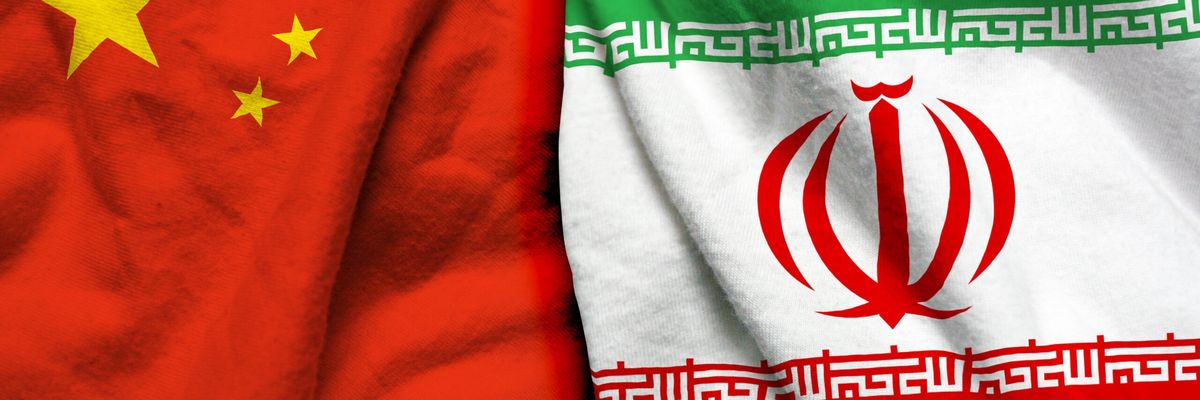Eager to enhance its negotiating leverage with the United States and Europe, Iran is projecting imminent membership of the China-led Shanghai Cooperation Organization (SCO) in much the same way it pushed the signing of a much-touted 25-year cooperation agreement with the People’s Republic that has yet to have any real legs.
Converting Iran’s SCO observer status into full membership is likely to be a long shot but would also constitute an important geopolitical victory for the Islamic republic in terms of its positioning vis a vis Russia, Turkey, and Saudi Arabia.
It could further kickstart putting flesh on the skeleton of the Chinese-Iranian cooperation agreement. Iran and China signed the agreement in March after a year of Iranian assertions that the accord was finally happening after first being plugged in 2016, so far largely remains a piece of paper with no practical consequence.
Founded in 2001, the SCO counts China, Russia, Kazakhstan, Kyrgyzstan, Tajikistan, Uzbekistan, India, and Pakistan as its members. Besides Iran, observers include Turkey, Afghanistan, Azerbaijan, and Armenia.
Against the backdrop of improved relations with Iran, Tajikistan, the only non-Turkic state in Central Asia that four years ago opposed Iranian membership, has this time around taken up the Iranian cause as host of an upcoming SCO summit in the Tajik capital of Dushanbe in September.
“That Iran becomes a major member is among plans of the Shanghai Organization and if other countries are ready to accept Iran, Tajikistan will also be ready,” said Zohidi Nizomiddin, Tajikistan’s ambassador in Iran.
The SCO decides on membership by consensus rather than a majority vote.
Iran and Tajikistan agreed in April to establish a joint military defence and military committee that would further security cooperation between the two countries.
Tajik backing of the Iranian bid is driven in part by the fact that the landlocked country needs access to ports. Iranian ports, including sIndian-backed Chabahar at the top of the Arabian Sea, offer the cheapest and shortest transportation options.
That, in turn, enhances Iran’s potential attractiveness to the Belt and Road, China’s infrastructure, transportation, and energy-driven initiative to connect the Eurasian landmass to Beijing.
The SCO has long been able to sideline the Iranian bid for membership on the grounds that it does not qualify as long as it was sanctioned by the United Nations. The UN sanctions were lifted after the signing of a 2015 international agreement that curbed Iran’s nuclear program.
Former US President Donald J. Trump withdrew from the accord in 2018 and Iran has since gradually moved away from compliance with its obligations under the agreement. The United States and the other signatories, including Iran, have been negotiating a US and Iranian return to the agreement since US President Joe Biden came to office in January.
Revival of the accord would involve lifting of US sanctions imposed since 2018 by the Trump administration. China, while frequently skirting US sanctions, has been careful not to run afoul of the United States with regards to Iran.
Sanctions likely were a convenient way of deferring the Iranian membership application. China and the SCO have multiple reasons to refrain from entertaining an Iranian bid.
Having learnt a lesson from allowing India and Pakistan to become members without some resolution of their differences, China and the SCO are unlikely to want an admission of Iran without at the same time inviting Saudi Arabia. Beijing and the group, moreover, would not want to give Iran a de facto veto over membership of its archrival.
The same may be true concerning Iran and Turkey. Turkey has exploited last year’s Azerbaijani victory in its Caucasus war against Armenia to expand relations with the four Turkic Central Asian republics, Uzbekistan, Turkmenistan, Kyrgyzstan, and Kazakhstan.
China has so far refrained from comment on reports that appear to be Iranian in origin about Iran being on the verge of SCO membership.
It is a pattern that fits the evolution of the 25-year Iranian Chinese cooperation agreement with one difference. Iran and China were able to sign an agreement without having to act on it. That formula will not work with the SCO. Iran is either a member or it isn’t.
China furthermore appears in contrast to the Iranian push for the cooperation agreement less interested in exploiting Iran’s SCO public diplomacy to send discreet messages to Washington and Riyadh.
Nonetheless, the experience of the cooperation agreement suggests that there is mileage for Iran in hot air messaging even if potential membership is not generating beyond Iranian media the kind of headlines that the 25-year accord did.
As a result, Iran wins irrespective of whether or not it becomes an SCO member in a matter of months.
For one, like with the cooperation agreement, it projects a greater tightening of relations with China than may be the case. It does so at a time that the United States and other Western nations are taking China to task for its aggressive policies and human rights abuses.
Reporting on potential membership of the SCO further counters the Western narrative that Iran is internationally isolated.
Analysts note that the cooperation agreement was signed just before the United States announced that it was about to enter into talks with Iran on a return to the nuclear agreement. Iran appears to be banking on a similar sequence of events before the SCO summit in September.
This article has been republished with permission from The Turbulent World of Middle East Soccer.
















